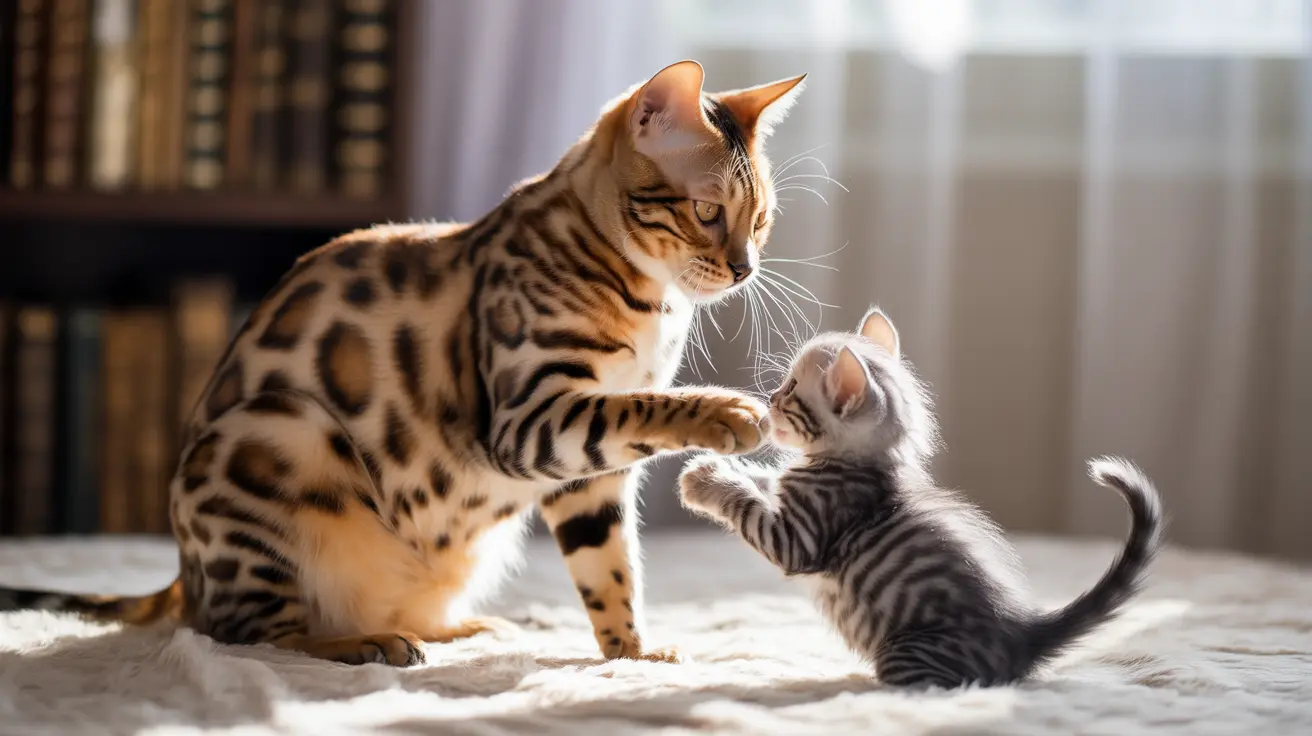Understanding Mother Cat Behavior and Kitten Handling
One of the most persistent myths in cat care is that touching newborn kittens will cause their mother to reject them. This widespread belief has caused many well-meaning people to avoid helping kittens in need. However, veterinary experts and animal behaviorists consistently confirm that this fear is largely unfounded.
The reality is that mother cats, especially domesticated ones, have powerful maternal instincts that aren't easily disrupted by human touch. These instincts are deeply rooted in their biology and aren't typically overridden by the mere presence of human scent on their offspring.
The Science Behind Maternal Instincts
Mother cats rely on multiple senses to identify and bond with their kittens, including sight, sound, and various scent markers that go far beyond simple human touch. Their maternal drive is incredibly strong, developed through millions of years of evolution to ensure species survival.
Research shows that mother cats can recognize their kittens through:
- Unique vocal signatures
- Distinct pheromone markers
- Visual recognition
- Behavioral patterns
When Should You Handle Newborn Kittens?
While touching kittens won't cause rejection, it's still important to know when and how to handle them appropriately:
- Wait until kittens are 1-2 weeks old unless necessary
- Always wash hands before and after handling
- Keep handling brief and gentle
- Watch for signs of mother cat stress
- Only intervene if kittens are in danger
Real Reasons for Kitten Rejection
When mother cats do reject their kittens, it's usually due to more serious factors:
- Health issues affecting either mother or kittens
- Insufficient resources or stress
- Birth defects or weakness in kittens
- Inexperience in first-time mother cats
- Environmental threats or dangers
Best Practices for Kitten Care
If you need to handle newborn kittens, follow these guidelines:
- Minimize disruption to the nest area
- Maintain a warm, quiet environment
- Ensure the mother has adequate food and water
- Monitor from a distance when possible
- Consult a veterinarian if you notice concerning behavior
Frequently Asked Questions
Will a mother cat reject her kittens if I touch them?
No, mother cats rarely reject their kittens solely because of human touch. Their maternal instincts are much stronger than any aversion to human scent.
Why do people say mother cats abandon kittens that have human scent?
This is a widespread myth that likely originated as a way to discourage people from disturbing newborn kittens unnecessarily. It's not based on scientific evidence.
How can I safely handle newborn kittens without stressing the mother?
Wash your hands thoroughly, keep handling brief, and watch the mother's behavior for signs of stress. Give her space and privacy after handling the kittens.
What are the real reasons a mother cat might abandon her kittens?
Mother cats typically only abandon kittens due to illness, insufficient resources, severe stress, or if the kittens are weak or sick.
When is it necessary to intervene and touch newborn kittens?
Intervention is necessary if kittens are in immediate danger, showing signs of illness, or if the mother cat has been absent for several hours.
Conclusion
The myth about mother cats rejecting touched kittens is just that - a myth. While it's important to handle newborn kittens carefully and minimize disruption, you don't need to worry about causing abandonment through gentle, necessary handling. Focus instead on providing a safe, stable environment for both mother and kittens, and don't hesitate to seek veterinary care if you have concerns about their well-being.






